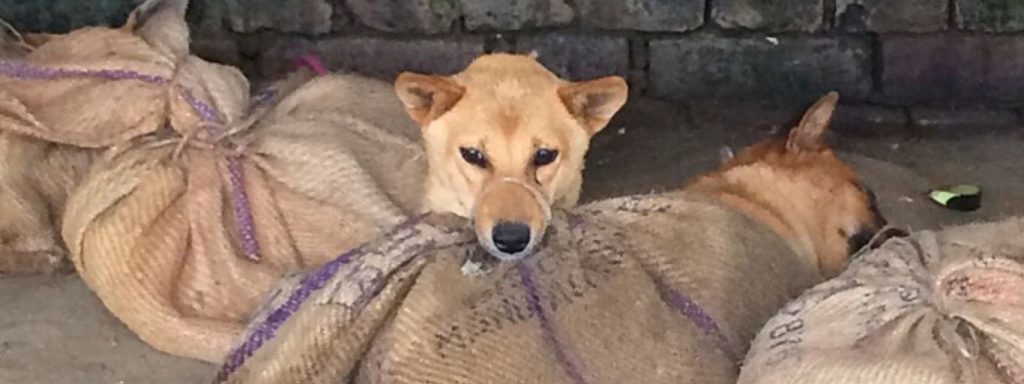Dog meat ban in Nagaland –Criticism by the Locals

![]()
News Desk
Animal activists in the recent past have been campaigning against Nagaland for its dog meat consumption. Its activism led by several organizations like People for Animals this week has stormed social media. It described Nagaland and its people in choicest of caricatures like “Nagaland has eaten all its own dogs” “dog bazars and the dog restaurants in Nagaland”, which are false.
Nagaland government banned the sale and consumption of dog meat in the state on 3rd July 2020. The news has been applauded by many among animal activists and lovers. However, in Nagaland and adjoining states, people are taken aback over the manner in which the decision was made without taking into consultation from Naga tribes who consume dog meat as a part of their food culture. This also sheds light on how it overlooked Article 371A of Nagaland which bestows Nagaland a special right to allow Naga tribes to practice and maintain their customary law and social practice.

How does eating beef, pork, fish, or chicken make one’s food choice or culture morally acceptable, or not eating any of them? As much as “not eating dog meat” is a part of one’s culture, there are certain communities where dog meat is taken as a part of their food culture.
Mizoram, in the month of March this year, also imposed the ban on dog meat. The ‘dog meat ban’ should not be seen in isolation from beef ban. In the case of beef, its consumption among indigenous communities of Northeast as part of their food culture is well established and known. It shall get to banning of beef in Northeast if animal activism from outside the region continues to have a final say on culture and custom of indigenous people.
Dog meat consumption occurs in Nagaland, Manipur and Mizoram and they are in continuity to food culture passed down from their ancestors. Naga tribes do not discriminate animals on the basis of some animals to be more equal than others, and they treat them equally, be it for food or domestication, and they don’t let greed take over them, which may lead to exploitation of animals for more meat or simply commercialization.
They kill animals for food in the best possible way of not torturing them. A failure to kill at one strike is scolded upon for being irresponsible which makes animal suffer.

It is in the last few centuries to last six decades that commercialization and interface with mainstream societies (colonialism, AFSPA, racism, etc) exposed them to learn about greed and violence in ways which cause irreparable damages to culture, custom and identity. This greed and cruelty attribute which is now attached to dog meat consumption is also an import from mainstream societies for another round of assault on their existences.
AFSPA was extended in Nagaland a few days ago; coronavirus-related racism still continues, or the Northeast concerns on CAA, etc, do not evoke any degree of empathy and support from animal activists or dog lovers, but they are very vocal when it comes to racism issue related to Black Lives Matter movement. The moral high ground they are at in the name of empathy for dogs, scribbled hate and racist comments against Naga tribes in several posts on social media. The concern towards dog for its meat consumption is hypocritical with crocodile tears while they attribute Naga tribes to be cruel and disgusting for dog meat consumption.